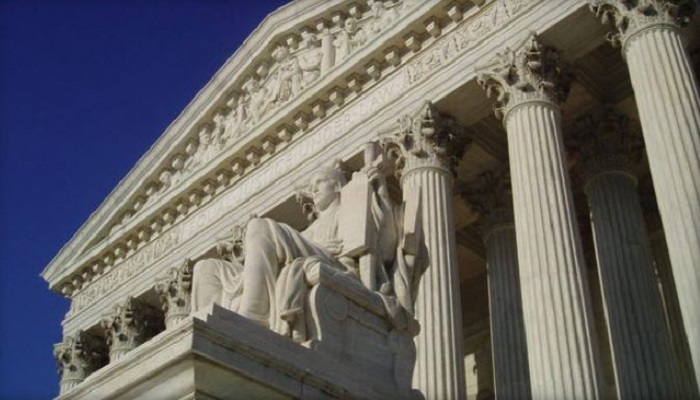
Donald Trump’s travel ban has finally been fully discharged by the higher courts. Here are the details of the report.
The US Supreme Court is allowing the Trump administration to fully enforce a ban on travel to the United States by residents of six mostly Muslim countries.
The justices, with two dissenting votes, said early Tuesday morning (IST) that the policy can take full effect even as legal challenges against it make their way through the courts. The action suggests the high court could uphold the latest version of the ban that Trump announced in September.
The ban applies to travelers from Chad, Iran, Libya, Somalia, Syria and Yemen. Lower courts had said people from those nations with a claim of a “bona fide” relationship with someone in the United States could not be kept out of the country. Grandparents, cousins and other relatives were among those courts said could not be excluded.
Justices Ruth Bader Ginsburg and Sonia Sotomayor would have left the lower court orders in place.
The ban applies to travelers from Chad, Iran, Libya, Somalia, Syria and Yemen. Lower courts had said people from those nations with a claim of a “bona fide” relationship with someone in the United States could not be kept out of the country. Grandparents, cousins and other relatives were among those courts said could not be excluded.
The courts were borrowing language the Supreme Court itself came up with last summer to allow partial enforcement of an earlier version of the ban.
Now, those relationships will no longer provide a blanket exemption from the ban, although visa officials can make exceptions on a case-by-case basis.
The justices offered no explanation for their order, but the administration had said that blocking the full ban was causing “irreparable harm” because the policy is based on legitimate national security and foreign policy concerns.
In lawsuits filed in Hawaii and Maryland, federal courts said the updated travel ban violated federal immigration law. The travel policy also applies to travelers from North Korea and to some Venezuelan government officials and their families, but the lawsuits did not challenge those restrictions. Also unaffected are refugees. A temporary ban on refugees expired in October.
David Levine, a University of California Hastings law school professor, said that by allowing the ban to take effect just days before the appeals court arguments, the justices were signaling their view.
“I think it’s tipping the hand of the Supreme Court,” Levine said. “It suggests that from their understanding, the government is more likely to prevail on the merits than we might have thought.”
All the rulings so far have been on a preliminary basis. The San Francisco-based 9th US. Circuit Court of Appeals and the 4th US Circuit Court of Appeals in Richmond, Virginia, will be holding arguments on the legality of the ban this week.
Both courts are dealing with the issue on an accelerated basis, and the Supreme Court noted it expects those courts to reach decisions “with appropriate dispatch.”
Quick resolution by appellate courts would allow the Supreme Court to hear and decide the issue this term, by the end of June.

Post Your Comments